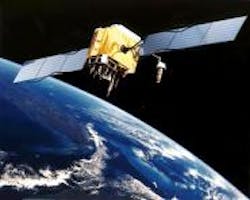“A satellite orbiting the earth could someday prevent an auto accident.” –Dr. Gerhard Schmidt, chief technical officer and vice president, of research and advanced engineering for Ford Motor Co.
I’ll admit it: my first reaction upon learning that joint research by Ford Motor Co. and Auburn University shows that global positioning system (GPS) satellites could help prevent motor vehicle accidents was somewhere between “What?” and “You’ve got to be kidding me.”
Apparently, though, virtual reality tests by the OEM and the university demonstrate that GPS satellites can precisely monitor a vehicle's motion to such a degree that it improves the speed and effectiveness of electronic stability control systems – literally “talking” to cars and trucks so fast that they could help prevent serious accidents, based on vehicle motion data.
In short, a GPS satellite can potentially act as an “early warning system” that detects when a vehicle is about to lose control, then communicate directly with the vehicle's stability control systems and other safety features to prevent a rollover or other serious accident.
The project's breakthroughs include developing algorithms combining data from sensors in Ford vehicles with data from GPS receivers – and it is this coordination of data that helped the researchers develop predictive models that can calculate a vehicle's roll angle, sideslip and velocities under various driving conditions.
That data, in the end, is what helps determines when the car and truck is literally seconds away from a crash, so safety systems can be deployed to possible prevent said crash or at least mitigate the consequences.
Certainly, more work needs to be done – and this technology is only entering the prototype stage. But it’s also probably only a foretaste of other things to come in the vehicle safety arena.
Auburn University's GPS and Vehicle Dynamics Laboratory, directed by Dr. David Bevly, received a three-year, $120,000 grant from Ford in 2008 as part of company's university research program – and Ford is continuing such grants, despite the economic hard times, pumping $4 million into programs this year, including 16 vehicle safety projects.
Making it work in the real world is of course the acid test – but the prototype work on this technology will be well worth watching.
